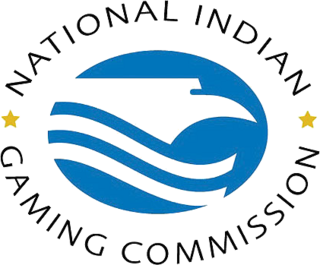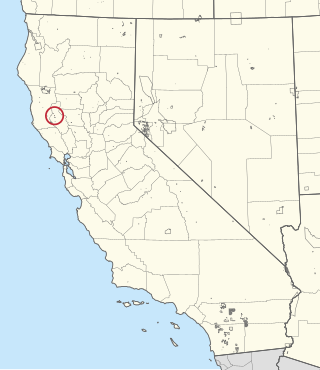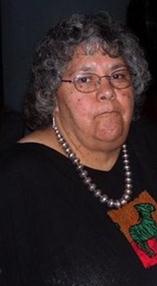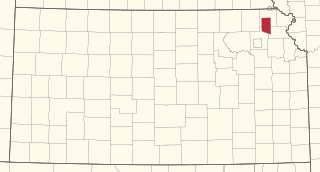Related Research Articles

Native American gaming comprises casinos, bingo halls, slots halls and other gambling operations on Indian reservations or other tribal lands in the United States. Because these areas have tribal sovereignty, states have limited ability to forbid gambling there, as codified by the Indian Gaming Regulatory Act of 1988. As of 2011, there were 460 gambling operations run by 240 tribes, with a total annual revenue of $27 billion.

Online poker is the game of poker played over the Internet. It has been partly responsible for a huge increase in the number of poker players worldwide. Christiansen Capital Advisors stated online poker revenues grew from $82.7 million in 2001 to $2.4 billion in 2005, while a survey carried out by DrKW and Global Betting and Gaming Consultants asserted online poker revenues in 2004 were at $1.4 billion. In a testimony before the United States Senate regarding Internet Gaming, Grant Eve, a Certified Public Accountant representing the US Accounting Firm Joseph Eve, Certified Public Accountants, estimated that one in every four dollars gambled is gambled online.
The Sac and Fox Nation is the largest of three federally recognized tribes of Sauk and Meskwaki (Fox) Indian peoples. Originally from the Lake Huron and Lake Michigan area, they were forcibly relocated to Oklahoma in the 1870s and are predominantly Sauk. The Sac and Fox Oklahoma Tribal Statistical Area (OTSA) is the land base in Oklahoma governed by the tribe.

The Native Hawaiian Government Reorganization Act of 2009 S1011/HR2314 was a bill before the 111th Congress. It is commonly known as the Akaka Bill after Senator Daniel Akaka of Hawaii, who proposed various forms of this bill after 2000.

The Alabama or Alibamu are a Southeastern culture people of Native Americans, originally from Alabama. They were members of the Muscogee Creek Confederacy, a loose trade and military organization of autonomous towns; their home lands were on the upper Alabama River.
The Jack Abramoff Indian lobbying scandal was a United States political scandal exposed in 2005; it related to fraud perpetrated by political lobbyists Jack Abramoff, Ralph E. Reed Jr., Grover Norquist and Michael Scanlon on Native American tribes who were seeking to develop casino gambling on their reservations. The lobbyists charged the tribes an estimated $85 million in fees. Abramoff and Scanlon grossly overbilled their clients, secretly splitting the multi-million dollar profits. In one case, they secretly orchestrated lobbying against their own clients in order to force them to pay for lobbying services.

The Rosebud Indian Reservation is an Indian reservation in South Dakota, United States. It is the home of the federally recognized Rosebud Sioux Tribe, who are Sicangu, a band of Lakota people. The Lakota name Sicangu Oyate translates as the "Burnt Thigh Nation", also known by the French term, the Brulé Sioux.

The Indian Gaming Regulatory Act is a 1988 United States federal law that establishes the jurisdictional framework that governs Indian gaming. There was no federal gaming structure before this act. The stated purposes of the act include providing a legislative basis for the operation/regulation of Indian gaming, protecting gaming as a means of generating revenue for the tribes, encouraging economic development of these tribes, and protecting the enterprises from negative influences. The law established the National Indian Gaming Commission and gave it a regulatory mandate. The law also delegated new authority to the U.S. Department of the Interior and created new federal offenses, giving the U.S. Department of Justice authority to prosecute them.

In the United States, gambling is subject to a variety of legal restrictions. In 2008, gambling activities generated gross revenues of $92.27 billion in the United States.
The Mississippi Band of Choctaw Indians is one of three federally recognized tribes of Choctaw people, and the only one in the state of Mississippi. On April 20, 1945, this tribe was organized under the Indian Reorganization Act of 1934. Their reservation included lands in Neshoba, Leake, Newton, Scott, Jones, Attala, Kemper, and Winston counties. The Mississippi Choctaw regained stewardship of their mother mound, Nanih Waiya mounds and cave in 2008. The Mississippi Band of Choctaw have declared August 18 as a tribal holiday to celebrate their regaining control of the sacred site. The other two Choctaw groups are the Choctaw Nation of Oklahoma, the third largest tribe in the United States, and the Jena Band of Choctaw Indians, located in Louisiana.

The National Indian Gaming Commission is a United States federal regulatory agency within the Department of the Interior. Congress established the agency pursuant to the Indian Gaming Regulatory Act in 1988.

Pokagon Band of Potawatomi Indians are a federally recognized Potawatomi-speaking tribe based in southwestern Michigan and northeastern Indiana. Tribal government functions are located in Dowagiac, Michigan. They occupy reservation lands in a total of ten counties in the area.

The Habematolel Pomo of Upper Lake is a federally recognized tribe of Pomo Indians in Lake County, California. The tribe's reservation, the Upper Lake Rancheria, is 119 acres (0.48 km2) large and located near the town of Upper Lake in northwestern California.
Cedric Cromwell, also known as Qaqeemasq in Wôpanâak, is the Former Tribal Council Chairman of the Mashpee Wampanoag Tribe of Massachusetts. Elected in 2009 as chairman, Cedric Cromwell was the head of the official elected government for the 2,600-member federally recognized tribe.

Pearl Casias is a member of the Southern Ute Indian Tribal Council and former Tribal Judge. In 2011, she was elected to be the first female Chairperson of the Southern Ute Tribal Council.
The Koi Nation of the Lower Lake Rancheria is a federally recognized tribe of Southeastern Pomo people in northern California. Their name for their tribe is Koi Nation of Northern California, from their traditional village, Koi, once located on an island in Clear Lake.
Legal forms of gambling in the U.S. state of North Carolina include the North Carolina Education Lottery, three Indian casinos, charitable bingo and raffles, and low-stakes "beach bingo". North Carolina has long resisted expansion of gambling, owing to its conservative Bible Belt culture.

The Kickapoo Tribe of Indians of the Kickapoo Reservation in Kansas is one of three Federally recognized tribes of Kickapoo people. The other Kickapoo tribes in the United States are the Kickapoo Traditional Tribe of Texas and the Kickapoo Tribe of Oklahoma. The Tribu Kikapú are a distinct subgroup of the Oklahoma Kickapoo and reside on a hacienda near Múzquiz Coahuila, Mexico; they also have a small band located in the Mexican states of Sonora and Durango.

The Michigan Gaming Control Board (MGCB) is a gaming control board in Michigan that provides oversight of the state's gaming industry, which was founded and authorized by statewide voting in November 1996.
The Indian Gaming Association is a nonprofit organization founded in 1986 made up of 184 Native American tribal nations in the United States, along with additional non-voting associate members. The purpose of the IGA is "to protect and preserve the general welfare of tribes striving for self-sufficiency through gaming enterprises in Indian Country," and to "maintain and protect Indian sovereign governmental authority in Indian Country."
References
- 1 2 3 4 Kimball, Nancy. "Tribal Focus Underlies Firm's Mission". The Daily Interlake.[ dead link ]
- ↑ Rosen, Cheryl (June 2007). "Place A Bet On Gaming". Journal of Accountancy.
- Lawrence, Bill (2001). "White Earth Casino Audits Made Public". The Ojibwe News. Archived from the original on 2013-06-01. - ↑ "Montana-based firm JOSEPH EVE joins Wipfli". www.wipfli.com. Retrieved 2018-10-24.
- ↑ Jones, Michael. "Congress Holds Online Gaming, Poker Hearing".
- "The Future Of Internet Gaming". Hearing Before the United States Senate Committee on Indian Affairs 112th Congress First Session. 17 November 2007.
- Stradbrooke, Steven (18 November 2011). "Senate Indian Affairs Committee Hears Tribal Concerns Over Tribal Gaming". Calvin Ayre Foundation.
- "Indian Affairs Hearing Reveals Tribes Oppose Barton Bill and Split on Legalization". COMPNCARDS. - ↑ "Oversight Hearingon the Future of Internet Gaming: What's at Stake for Tribes". Archived from the original on April 25, 2016. Retrieved September 12, 2012.
- Akaka, Daniel. "Indian Affairs Oversight Hearing On Indian Gaming". United States Senate Committee on Indian Affairs. - ↑ "National Indian Gaming Association 2011 report" (PDF). National Indian Gaming Association. Mohegan Sun. 2011. Archived from the original (PDF) on 2014-02-11. Retrieved 2012-08-09.
- ↑ "Joseph Eve Launches Tribal Internet Gaming Consulting Group" (PDF). Indian Gaming. May 2011. Archived from the original (PDF) on 2016-08-13. Retrieved 2012-08-09.
- "Joseph Eve Launches Tribal Financing And Accounting Outsourcing Practice" (PDF). Indian Gaming. April 2011. Archived from the original (PDF) on 2016-03-03. Retrieved 2012-08-09. - ↑ Abernathy, Jason. "Rosebud Sioux Gaming Keeps On Turning". Native Sun News. Archived from the original on 2012-11-28. Retrieved 2012-09-12.
- Richardson, Ehren (April 2011). "US Indicts Poker Website Operators And Creates Opportunities For Tribal Gaming" (PDF). IGaming Business Magazine. Archived from the original (PDF) on 2016-08-13. Retrieved 2012-08-09.
- "Igaming Regulation In Canada". Canadian Gaming Business. Archived from the original on 2016-05-31. Retrieved 2012-08-09. - ↑ "Tribal Leaders Continue Internet Gaming Dialogue at Mystic Lake Casino". Indian Gaming Weekly. August 22, 2012.
- Red-Horse, Valerie (July 2012). "Internet Gaming Explored At Great Plains conference". Casino Enterprise Magazine.
- "16th Annual Oklahoma Indian Gaming Association" (PDF). Oklahoma Indian Gaming Association.[ permanent dead link ]
- Whitley, John (May 2007). "In Depth: Profits Give Tribes Political, Financial Power". Casino City Times. - ↑ Larcombe, James E. "Focus on tribal clients helps expansion". Great Falls Tribune.
- ↑ Red Horse, Valerie (2 July 2012). "Internet Gaming Explored at Great Plains Conference". Casino Enterprise Management. Retrieved 8 November 2012.
- ↑ "NEWave Brings Award-Winning Software Solutions to Southern Gaming Summit/Bingo World". Marketwire.[ dead link ]